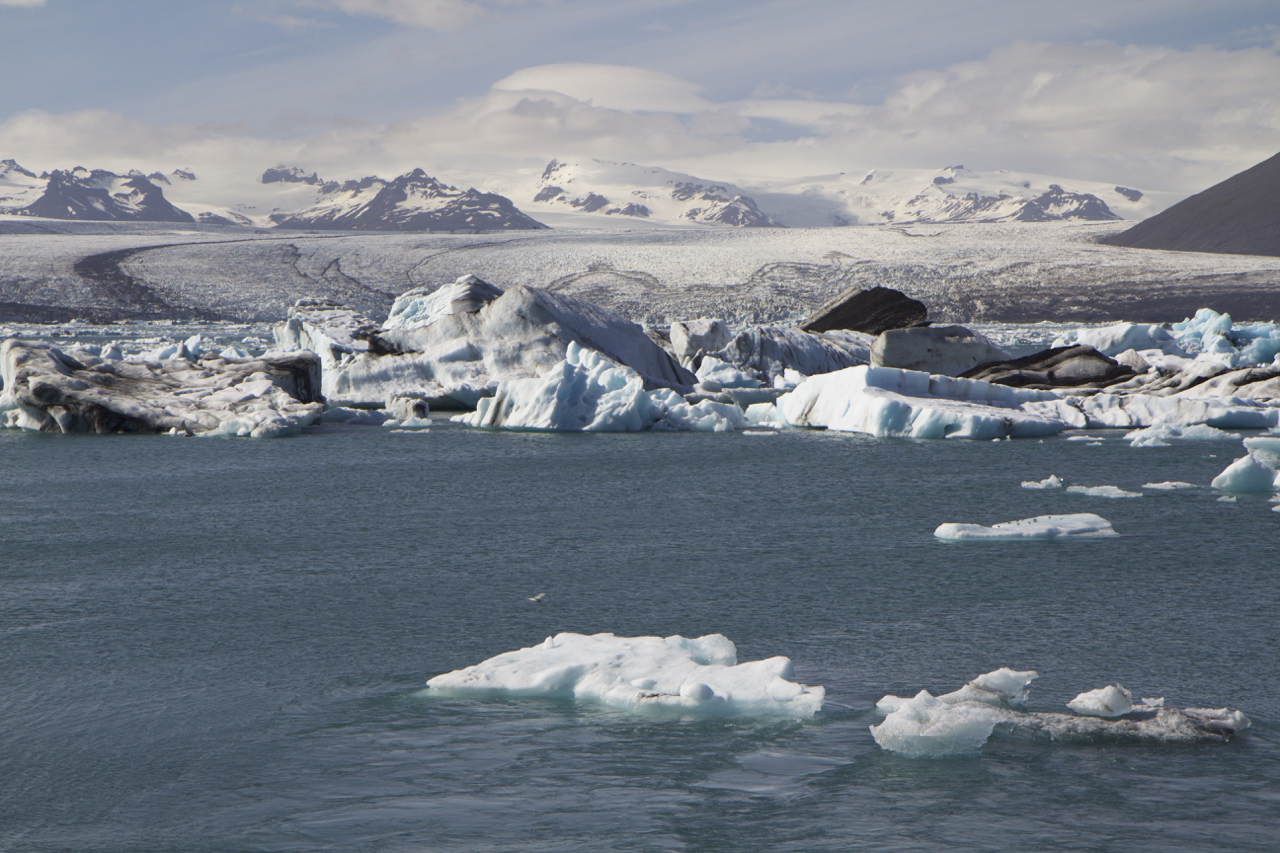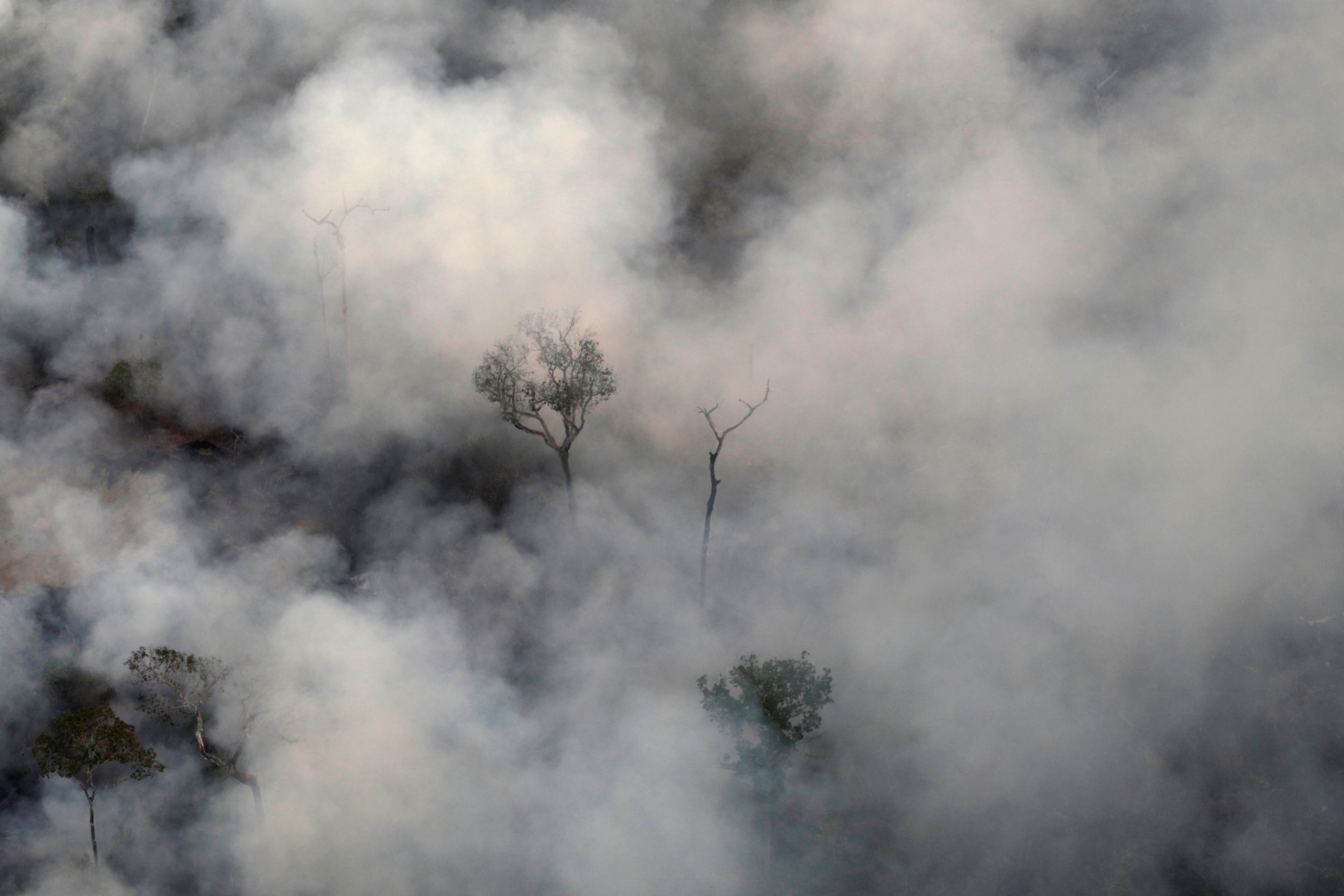
A glacier lagoon is seen in southern Iceland in July 2017. (CNS/Thomson Reuters Foundation/Thin Lei Win)
Sunday marked the start of the annual ecumenical "Season of Creation" observance, which lasts from Sept. 1 through Oct. 4, the Feast of St. Francis of Assisi. It is a time set aside for Christians to reflect on the state of creation through prayer and action.
It is also an opportunity to focus our attention on the most fundamental issues of justice and peace, particularly as they pertain to our ethical commitment to life issues.
In recent decades there has been some nasty infighting among Catholics who argue about which life issue is the most important, especially in guiding one's political choices. Some groups — often the loudest — say abortion is the single most important life issue. Others say euthanasia or assisted suicide is the most important. Still others, in keeping with the church's longstanding tradition of the sanctity of all life, say that we cannot single out one such issue but recognize that as Catholics we must maintain a consistent ethic of life, an ethical outlook sometimes referred to as the "seamless garment" approach.
While I agree with the intellectual and moral integrity of the consistent ethic of life principle, which upholds that every human life — born and unborn — is inherently valuable, dignified, and must be protected, we live in a time in which there is now a more fundamental issue that threatens all life: climate change. For this reason, it seems to me dangerously shortsighted to propose directing our attention, argumentative energies, and financial resources to any singular anthropocentric ethical issue. The stakes are too high for us now to be so myopic.
Global climate change threatens every life now and poses an existential danger to the very condition of the possibility for future life on this planet. If we are called to be moral agents guided by a seamless garment approach, as I believe we are, then climate change is the body on which such a garment hangs.The preservation of particular human lives is predicated on the future of the planet and delicate ecosystems on it that make life possible at all.
Advertisement
What good is it to prevent abortions or save the elderly from euthanasia or ensure the elimination of capital punishment if there is no air to breathe, water to drink, land to farm, plants or animals to eat, or habitats free from flooding, hurricanes, wildfires, tornados, earthquakes or some of the other devastating weather phenomena? I'm not suggesting that we ignore those discrete life issues; they demand prayer and action, too. However, there is a uniquely dire valence to what is happening to our planet and a very limited window to do anything to save the very possibility of life on this planet at all.
There are some people who rightly understand the gravity of our circumstances and the urgency that should govern our response.
Pope Francis, for example, situated his 2015 encyclical letter "Laudato Si', on Care for Our Common Home" within the broader tradition of Catholic moral teaching, reminding the church and world that despite our self-centered compartmentalization, there is only ever an "integral ecology" in which the fate of humanity and non-human creation are inextricably intertwined. While the human poor have been and will always be the first to suffer the consequences of climate change's effects, ultimately no one can escape the destruction of "our common home."
Greta Thunberg, the 16-year-old Swedish climate activist, is another prophetic voice on this life issue today. Her recent sailing trip across the Atlantic Ocean to New York for the United Nations climate talks, a mode of long-distance transportation with zero carbon emissions, put her back in the spotlight. At the age of 15, she helped launch a series of school strikes and climate demonstrations across Europe and beyond, which shows that wisdom is not reserved for the old alone, and that our younger sisters and brothers can teach and lead us. Yet, as Thunberg has often said, it is up to adults who have power now to do something. In a 2018 speech, she accused world leaders of stealing their children's "future in front of their very eyes." She sagely admonished the world: "Until you start focusing on what needs to be done rather than what is politically possible, there is no hope. We cannot solve a crisis without treating it as a crisis."
The problem is that too few people listen to the inspired voices of Francis or Thunberg. And some people, including the current president of the United States, are doing the exact opposite of what is necessary.

Smoke near Porto Velho, Brazil, billows during a fire in the Amazon rainforest Aug. 21, 2019. Leaders of the Latin American bishops' council urged international action Aug. 22 to save the rainforest as massive fires continued to burn. (CNS photo/Reuters/Ueslei Marcelino)
Instead of working to solve the crisis, Donald Trump and his administration are actively exacerbating it. According to aNew York Times report published last week, the Trump Administration has "rolled back" 84 environmental rules and policies so far. The report, citing a New York University study, explains: "All told, the Trump administration's environmental rollbacks could significantly increase greenhouse gas emissions and lead to thousands of extra deaths from poor air quality every year."
No one who aspires to be truly pro-life, who cares about justice and peace, can support the environmental policies of Trump. The numerous other anti-life policies of Trump and his administration notwithstanding, his views on and harmful actions related to climate change alone disqualify him from any claim of being "pro-life."
As another presidential election cycle kicks into higher gear, Catholics and others will begin to select lenses through which to evaluate political candidates — both presidential and down-ballot. Some people will inevitably claim and preach and advertise that a singular anthropocentric life issue, like abortion, is the only political litmus test for judging a candidate. The United States bishops have repeatedly responded to this sort of illogical absolutism, stating directly in their guide to voting: "As Catholics, we are not single-issue voters. A candidate's position on a single issue is not sufficient to guarantee a voter's support."
If we are called to be moral agents guided by a seamless garment approach, as I believe we are, then climate change is the body on which such a garment hangs.
I agree with the bishops. We cannot be so simplistic and reductive as to make what is meant to be a well-informed and thought-out decision about our governmental representation and leadership a simple binary, yes-or-no referendum on our favorite ethical case or ideological point. We must take the whole panoply of issues relating to peace and justice into consideration when we cast our votes and weigh our life choices.
Nevertheless, there will be a natural inclination to order our priorities and take stock of what is most important in the moment. The magnitude of climate change's threat to life — human and nonhuman alike — eclipses everything else. People are already dying from its consequences, and more will follow. As the Amazon Forest continues to burn at an alarming rate, polar ice keeps melting, sea levels keep rising, thousands of species become endangered and then extinct, and numerous other travesties arising from this ecological crisis imperil life on this planet (including our own), we need to be serious as people of faith and acknowledge that global climate change is the most importantlife issue today. And we must act in accordance with this realization.
Let us not squander this year's Season of Creation, but instead allow it to be a time for us to reorder our priorities and form our consciences to be truly pro-life, because the future of all life is counting on us.
[Daniel P. Horan is a Franciscan friar and assistant professor of systematic theology and spirituality at Catholic Theological Union in Chicago. Follow him on twitter: @DanHoranOFM]
Editor's note: Don't miss out. Sign up to receive an email notice every time a new Faith Seeking Understanding column is published.





